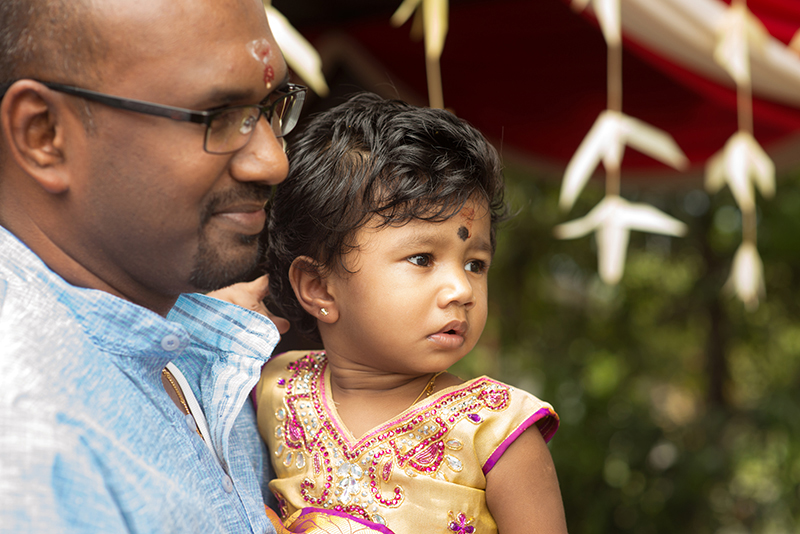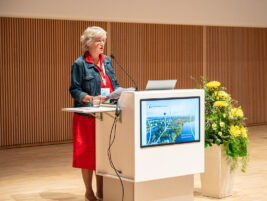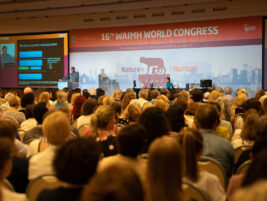The series of WAIMH webinars continues with two webinars organized by Professor Hiram Fitzgerald, with the focus on fathers. The first webinar is on Friday February 19th, 2021 and the second Friday 26th February, both at 4:00-5:30pm (EST).
The webinars are free for WAIMH members. Register here: https://waimh.org/page/webinars_for_members
WEBINAR 1: Fathers and Children’s Social and Behavior Regulation
February 19: Friday. 4:00 pm – 5:30 pm (EST)
4:00–4:10 Introduction: Hiram Fitzgerald
4:10-4:30 Fathers Emotional Availability: Sarah Bergmann
4:30-4:50 Fathers and Children’s Social Development: Natasha Cabrera
4:50-5:10 Fathers and Children’s Executive Functioning: Alyssa Meuwissen
5:10-5:30 Questions and Answers (from viewers)
WEBINAR 2: Fathers and Children’s Mental Health
February 26: Friday 4:00 pm – 5:30 pm (EST)
4:00–4:10 Introduction: Hiram Fitzgerald
4:10- 4:30 Paternal Alcohol Use Disorders and Early Childhood Development: Stephani Godleski
4:30-4:50 Psychotherapy with Fathers: Kai von Klitzing and Lars White
4:50–5:10 Community Based Support Systems for Fathers: Richard Fletcher
5:10–5:30 Questions and Answers from Participants
Presenters
Hiram E Fitzgerald, D. is University Distinguished Professor Emeritus in the Department of Psychology at Michigan State University. Fitzgerald’s major areas of research include the study of infant and family development in community contexts, the impact of fathers on early child development, the etiology of alcohol use disorders, and the scholarship of community engagement. He is a Fellow of the American Psychological Association (Divisions 7, 34, 37, 43, 50) and the Association of Psychological Science, and Honorary President of the World Association of Infant Mental Health.
Sarah Bergmann, Ph,D,is a Psychologist and research associate at the Department of Child and Adolescent Psychiatry, Psychotherapy and Psychosomatics, University of Leipzig and at the International Psychoanalytic University Berlin. For the last years, her main topic of research has been the relationship quality between parents and their young children including a specific focus on gender differences in and predictors as well as child outcomes of the quality of parent-child interactions.
Natasha J. Cabrera, Ph.D, is Professor of Human Development at the University of Maryland. Her research focuses on father involvement and children’s social and cognitive development; adaptive and maladaptive factors related to parenting; ethnic and cultural variations in fathering and mothering behaviors; family processes in a social and cultural context and children’s development; and the mechanisms that link early experiences to children’s school readiness. She is the co-editor of the Handbook of Father Involvement: Multidisciplinary Perspectives, Second Edition (Taylor & Francis, 2013)
Alyssa Meuwissen, PhD is a Research Associate in the Center for Early Education and Development (CEED) at the University of Minnesota-Twin Cities. Her work is focused on evidence-based interventions to support positive interactions between young children and the adults in their lives, with much of her research focused on fathers as an understudied population. She is passionate about promoting strong child cognitive and social development by getting research findings to the adults who can use them.
Stephanie Godleski, PhD, is a clinical psychologist and an Assistant Professor in the Department of Psychology at the Rochester Institute of Technology. The primary focus of her research is pathways of risk and resilience in predicting social competence across the lifespan. Specifically, she has focused on protective (e.g., parenting) and maladaptive (e.g., prenatal exposure) processes that predict and maintain negative social-emotional developmental and health outcomes
Kai von Klitzing, MD, Professor of Child and Adolescent Psychiatry, University of Leipzig, Germany, Psychoanalyst for adults, adolescents, and children, ( Swiss Psychoanalytical Society and German Psychoanalytical Association/IPA), Training Analyst, Editor of the Journal Kinderanalyse/Child Analysis, Associate- editor of the Infant Mental Health Journal, President of the World Association for Infant Mental Health. Scientific interests: Developmental psychopathology, early triadic relationships (mother – father – infant), children’s narratives, psychotherapy (individual and family), childhood maltreatment and neurobiology.
Lars White, Ph.D., M.Sc. is research group leader and clinical psychologist at the Department of Child and Adolescent Psychiatry, University of Leipzig. He received his doctorate from the University of Leipzig (Kai von Klitzing’s lab) in collaboration with the Max-Planck-Institute for Evolutionary Anthropology (Michael Tomasello’s lab) on social exclusion and mentalizing in young children. Besides his work on social exclusion which he has recently extended to fathers, the present focus of his research is on the long-term effects of child maltreatment and neglect as well as child psychotherapy. He completed his postgraduate studies at the University College London, the Anna Freud Centre and the Yale Child Study Center as well as at the International Psychoanalytic University. He is recipient of awards from the British Psychological Society and German Academic Exchange Service
Richard Fletcher, Ph.D. is Associate Professor in the Family Action Centre, Faculty of Health and Medicine, The University of Newcastle, NSW, Australia. Richard’s expertise includes the design and conduct of research into fathers’ role in families across diverse settings: new fathers, antenatal support, rough and tumble play, Aboriginal fathers and fathers using the web. He is Principal Investigator on a range of projects delivering SMS4dads. He is editor of the Fatherhood Research Bulletin.








